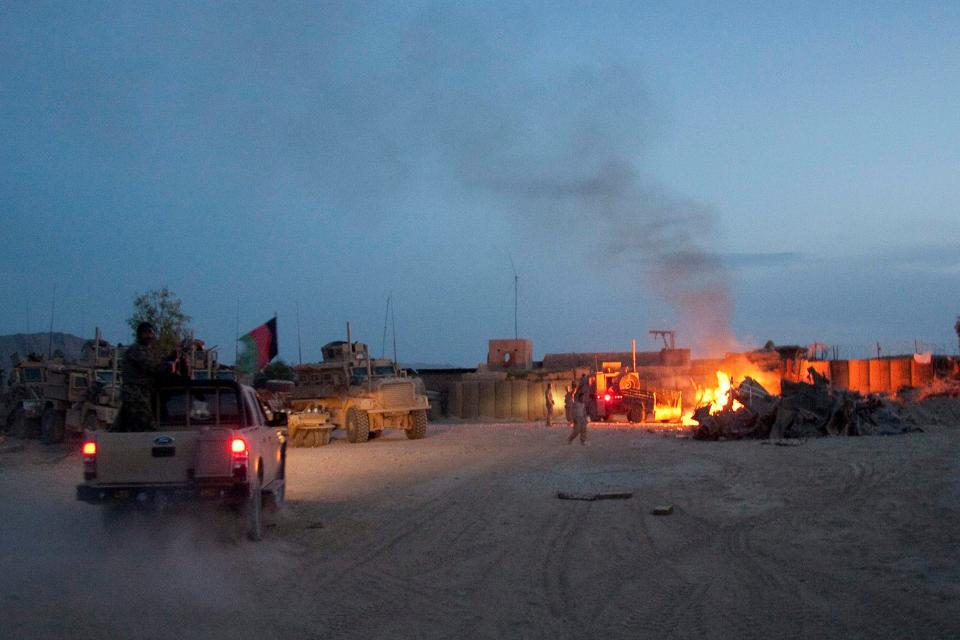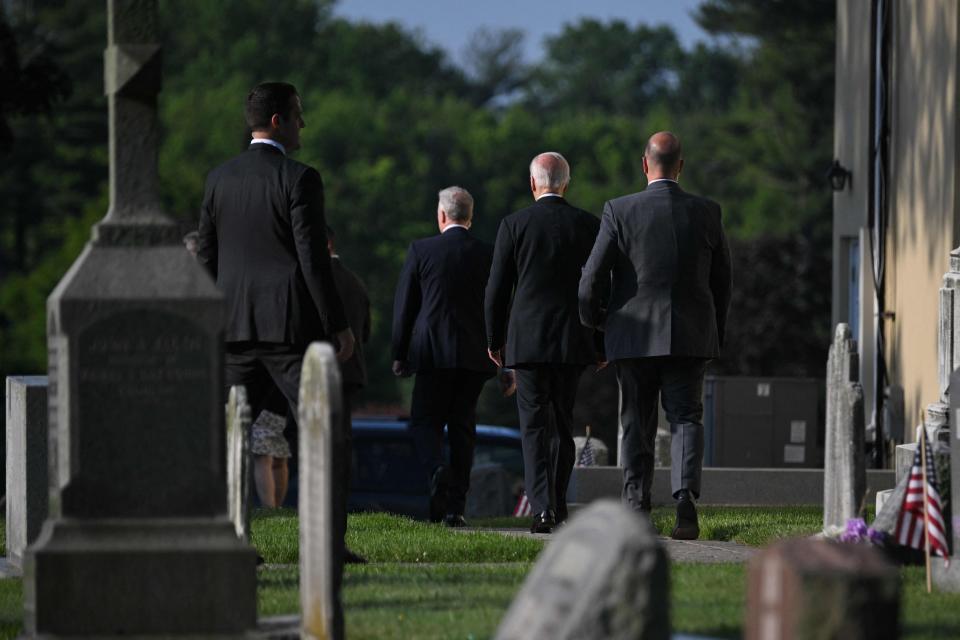Biden signs PACT Act into law, expanding benefits for roughly 3.5 million veterans exposed to toxic burn pits
- Oops!Something went wrong.Please try again later.
WASHINGTON – President Joe Biden signed the PACT Act (Promise to Address Comprehensive Toxics) into law Wednesday, expanding health care benefits for veterans who were exposed to toxic burn pits.
"This is the most significant law our nation has ever had passed to help millions of veterans who are exposed to toxic substances during their military service," Biden said before signing the bill.
What are burn pits and what does the bill do?
Burn pits – open-air trash sites that dispose of military waste through burning – exposed about 3.5 million veterans to toxic chemicals that could result in respiratory illness or various forms of cancer, according to the Department of Defense.
Veterans have been denied disability benefits and medical care because there is a lack of concrete evidence directly linking burn pits with illness.
More: Senate passes PACT Act, latest effort in yearslong fight to help veterans exposed to toxic burn pits
The PACT Act codifies a relationship between specific illnesses and cancers with burn pits, lifting the burden of proof from veterans, who won't have to argue with the Department of Veterans Affairs about their illnesses to receive benefits.

What are people saying?
Last month, House Speaker Nancy Pelosi, D-Calif., said, "Toxic exposure is a cost of war, and we must treat it as such. This is not a question of dollars – it's a matter of values."
A statement released last month by House Minority Leader Kevin McCarthy, R-Calif., criticized the bill's cost, blaming a "budget gimmick" that would allow more "reckless spending" by Democrats. McCarthy was one of 88 no votes when the bill passed the House.
Sen. Sherrod Brown, D-Ohio, told USA TODAY, "It's a huge victory for veterans. One of the most important things we've ever done for vets."
On the Senate floor Tuesday afternoon, Sen. Jerry Moran, R-Kan., ranking member of the Veteran Affairs Committee, implored his colleagues to "deliver the most comprehensive toxic exposure package to veterans in our country's history."
Jon Stewart, comedian and former host of "The Daily Show," has been one of the bill's most outspoken supporters. In front of the Capitol on Monday, Stewart said, "We all owe a debt of gratitude to (veterans). And it’s about time we start paying it off.”

An issue close to Biden’s heart
Biden has a personal stake in the bill: Glioblastoma – which killed his son Beau, a major in the Army National Guard – is one of the cancers codified. In his State of the Union speech in March, Biden alluded to the possible connection between burn pits and his son’s death.
"We don’t know for sure if a burn pit was the cause of his brain cancer, or the diseases of so many of our troops," he said. "But I’m committed to finding out everything we can."
Though research is still being conducted to establish whether there is a direct correlation between burn pits and illness, activists and Biden said action is needed now.

“When the evidence doesn't give a clear answer one way or another, the decision we should favor is caring for our veterans while we continue to learn more – not waiting," Biden said in March during a visit to a VA clinic in Fort Worth, Texas. "We're not waiting.”
Procedural hiccups
The bill had been scheduled to be signed into law before Congress' Fourth of July recess but hit a procedural snag.
The Senate introduced a tax provision, but the Constitution says tax provisions must originate in the House.
Both chambers blamed each other for not noticing the hiccup and letting it pass. The House resolved the issue, sending the bill back to the Senate.
In June, the bill passed the Senate by a bipartisan vote of 84-14. The bill, largely unchanged, was blocked by 41 Republican senators over a budgeting issue between mandatory and discretionary spending.
Sen. Pat Toomey, R-Pa., introduced an amendment he said would get rid of a "budgetary gimmick" for what he claimed would an "unrelated spending spree." Toomey said delaying the bill was worth it to put a "spotlight" on Democrats. The amendment failed in a 47-48 vote when 60 votes were required.
This article originally appeared on USA TODAY: Biden signs PACT ACT, expanding healthcare benefits for veterans

